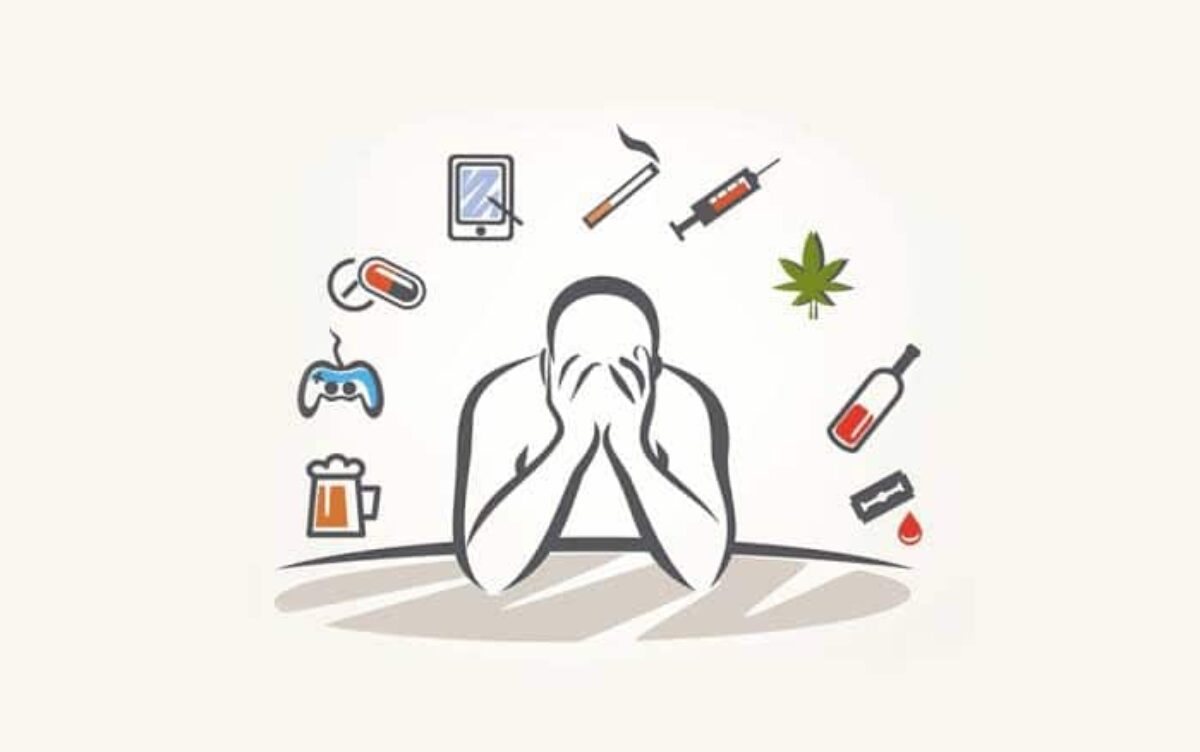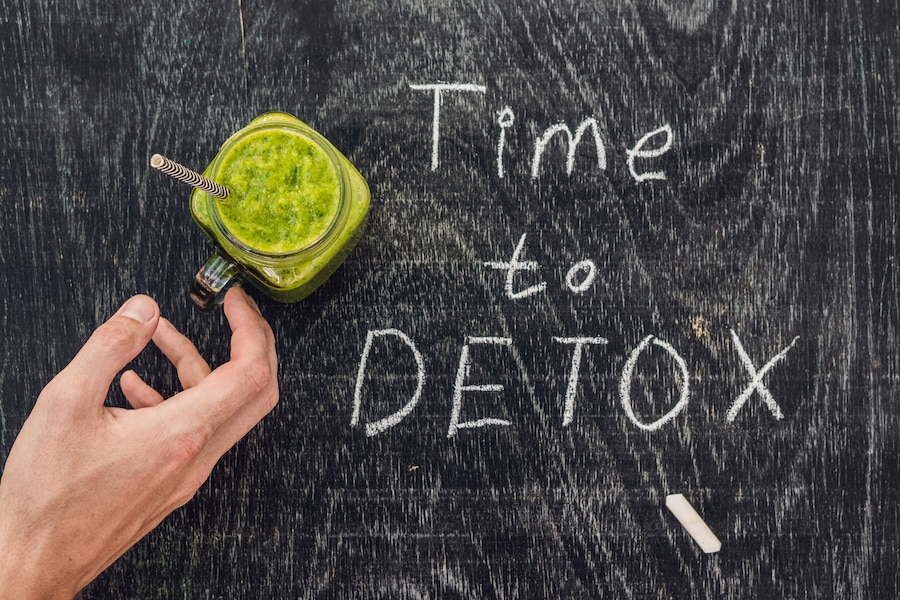All American Detox is a premier facility in Los Angeles, CA, specializing in drug detoxification services designed to support individuals as they embark on their path to recovery. Committed to delivering safe, effective, and personalized detox programs, the center provides the highest standard of medical supervision and care. By integrating evidence-based treatments with a compassionate approach, All American Detox aims to offer a supportive environment that facilitates the initial stages of recovery.
Equipped with cutting-edge facilities and staffed by a team of experienced professionals, All American Detox focuses on creating a secure and nurturing space for clients. The facility’s goal is to minimize the discomfort of detoxification and prepare individuals for the next steps in their recovery journey. Offering a variety of tailored detox programs, the center addresses the unique needs of each individual, ensuring a seamless transition into long-term treatment and recovery.
Understanding Drug Detox
Drug detoxification, or detox, is the process of removing toxic substances from the body and managing withdrawal symptoms. It is the initial and crucial step in the recovery process for individuals dealing with substance abuse. Detox aims to safely and effectively clear drugs from the system while minimizing discomfort and health risks associated with withdrawal. This process often requires medical supervision to ensure safety and provide support as the body adjusts to the absence of the substance.
Detoxification is not a standalone treatment but a precursor to comprehensive addiction treatment. It prepares individuals for further therapeutic interventions by stabilizing their physical health and addressing withdrawal symptoms. Understanding the detox process and its role in recovery helps individuals and their families make informed decisions about the next steps in treatment.
Detox Programs Offered
All American Detox provides a range of detox programs tailored to meet the unique needs of individuals based on their substance use, health, and personal circumstances. The primary detox programs include:
Inpatient Detox
Inpatient detox at All American Detox is a highly structured program designed to offer intensive care and support for individuals grappling with severe addiction issues. This program provides 24/7 medical supervision within a residential setting, ensuring that clients receive continuous attention and care throughout the detoxification process.
The residential facility creates a controlled environment that is crucial for managing withdrawal symptoms effectively. By removing clients from potentially triggering environments and offering a safe, distraction-free space, the program helps individuals focus entirely on their recovery. This immersive setting supports clients in navigating the often challenging early stages of detox with the necessary medical and emotional resources.
Outpatient Detox
Outpatient detox at All American Detox is designed for individuals who do not need constant medical supervision or who have a strong support system at home. This program provides a flexible approach to detoxification, allowing clients to continue with their daily routines while receiving necessary medical support.
Clients in the outpatient detox program attend scheduled sessions at the detox center but are able to maintain their personal and professional responsibilities outside of these sessions. This setup is ideal for those whose addiction issues are less severe or who have a stable environment that can support their recovery efforts.
During outpatient detox, clients receive medical support and monitoring tailored to their specific needs. While they are not in a residential facility, they benefit from regular check-ins with healthcare professionals who oversee their withdrawal symptoms and adjust treatment plans as needed. This ensures that clients are safely progressing through the detoxification process.
Medically Assisted Detox
The program involves the careful administration of medications under the close supervision of healthcare professionals. These medications are selected based on the substance involved, the severity of addiction, and individual health considerations. By using medications, the detox process can be more tolerable, helping clients cope with the physical and psychological challenges of withdrawal.
Medically assisted detox aims to minimize discomfort associated with withdrawal symptoms such as nausea, sweating, and anxiety. The medications used are chosen to specifically target these symptoms, easing the transition off the substance and supporting the client’s overall well-being during this critical phase of recovery. This approach also helps to reduce the intensity of cravings, which can be a significant barrier to successful detoxification.
Healthcare professionals monitor clients throughout the medically assisted detox process to ensure that the treatment remains safe and effective. Regular assessments are conducted to adjust medication dosages as needed and to address any emerging issues promptly. This ongoing supervision ensures that clients receive the right level of care and support throughout their detox journey.
Common Withdrawal Symptoms
Withdrawal symptoms can vary based on the substance being used, the length of usage, and individual health factors. They generally fall into three categories:
Physical Symptoms: These symptoms occur as the body reacts to the absence of the substance and attempts to return to its normal state. Common physical symptoms include nausea, vomiting, sweating, chills, muscle aches, and tremors. These symptoms can range from mild to severe, depending on the substance and the individual’s physical condition.
Psychological Symptoms: The mental and emotional challenges during withdrawal can include anxiety, depression, irritability, and difficulty concentrating. These symptoms reflect the brain’s adjustment to the lack of the substance and can significantly impact an individual’s mood and mental clarity.
Severe Symptoms: In some instances, withdrawal can cause more intense symptoms such as seizures, hallucinations, or severe agitation. All American Detox is equipped with medical professionals and interventions to manage these severe symptoms, ensuring the safety and comfort of clients throughout the detoxification process.

The Detox Process
The detoxification process at All American Detox is designed to ensure a safe and supportive transition for individuals as they begin their recovery journey. This process involves several key stages:
Assessment and Evaluation: The detox process begins with a comprehensive assessment to evaluate the individual’s substance use history, medical condition, and any co-occurring disorders. This evaluation helps determine the most appropriate detox program and creates a personalized treatment plan tailored to the client’s needs.
Medical Supervision: During detox, clients receive continuous medical supervision to manage withdrawal symptoms and ensure their safety. Healthcare professionals closely monitor vital signs, administer medications as needed, and provide medical support to alleviate discomfort and prevent complications.
Symptom Management: Effective symptom management is a critical component of the detox process. All American Detox uses a combination of medical interventions and supportive care to address both physical and psychological withdrawal symptoms. This may include medications to ease cravings and reduce discomfort, as well as therapies to support emotional well-being.
Transition to Ongoing Treatment: Once detoxification is complete, clients are prepared for the next steps in their recovery journey. All American Detox facilitates a smooth transition to long-term treatment programs, such as inpatient or outpatient rehabilitation, to provide continued support and help clients maintain their sobriety.
Throughout the detox process, All American Detox emphasizes a compassionate and supportive environment, ensuring that individuals receive the care and guidance needed to overcome the initial challenges of recovery and lay a solid foundation for lasting success.
Support and Counseling During Detox
Support and counseling are crucial elements of the detox process at All American Detox, providing a comprehensive approach to managing both the physical and emotional challenges of withdrawal. These services are designed to ensure that clients receive the necessary support to navigate their detox journey effectively and lay a strong foundation for long-term recovery.
Individual Counseling offers clients personalized support through one-on-one sessions with experienced therapists. These sessions focus on addressing the psychological aspects of addiction, helping clients explore the underlying issues contributing to their substance use. Therapists provide guidance on coping strategies, stress management, and emotional regulation. This individualized attention allows clients to work through personal challenges, gain insight into their addiction, and develop a tailored plan for their ongoing recovery.
Group Therapy provides a supportive environment where clients can share their experiences and learn from others facing similar struggles. Group therapy sessions encourage open dialogue, fostering a sense of community and connection among participants. The collective sharing of insights, challenges, and successes can be empowering and reassuring, helping clients feel less isolated and more motivated to continue their recovery journey. The group dynamic also offers diverse perspectives and collective wisdom, enriching the therapeutic process.
Family Involvement is an essential aspect of the detox process at All American Detox. Family counseling sessions are designed to educate and support family members, helping them understand the detox process and their role in the client’s recovery. These sessions address family dynamics, improve communication, and strengthen the support system for the client. Involving family members can enhance the overall recovery experience by fostering a supportive home environment and addressing any relational issues that may impact the client’s progress.
By integrating these support and counseling services, All American Detox ensures that clients receive comprehensive care that addresses both their immediate needs during detox and their long-term recovery goals. This holistic approach supports clients in overcoming their addiction and building a resilient foundation for a healthier future
Preparing for Detox
Proper preparation is crucial for ensuring a smooth and effective detox experience at All American Detox. The facility emphasizes several key steps to help clients ready themselves for the detox process, ensuring both physical and emotional readiness for the challenges ahead.
Medical Preparation involves undergoing a thorough medical evaluation before beginning detox. This assessment is designed to identify any underlying health conditions that may impact the detox process. It includes screening for chronic illnesses, cardiovascular issues, or other medical concerns that need to be managed during detox. Addressing these health issues beforehand ensures that clients receive appropriate care and reduces the risk of complications during the detoxification process.
Psychological Readiness is another critical component of preparation. Clients are encouraged to mentally prepare for detox by understanding what to expect and setting realistic goals for their recovery. This involves learning about the detox process, recognizing the potential challenges, and developing a positive attitude towards recovery. Educational resources and counseling sessions provide valuable insights into the emotional aspects of detox, helping clients build resilience and a constructive mindset as they embark on their recovery journey.
Logistical Preparation ensures that clients are well-informed about the practical aspects of their detox stay. This includes details on what to bring, the daily schedule, and the facility’s rules and guidelines. Clients are given clear instructions on how to prepare for their stay, which helps them feel more comfortable and less anxious about the transition into the detox program. This preparation helps clients adapt quickly to the detox environment and focus on their recovery without unnecessary distractions.
By guiding clients through these preparation steps, All American Detox aims to create a supportive and well-organized environment that facilitates a successful detox experience. Ensuring that clients are medically, psychologically, and logistically prepared helps lay a strong foundation for their recovery and increases the likelihood of a positive outcome.
Find Drug Detox in Los Angeles at All American Detox
Drug detoxification marks the essential initial phase of the recovery journey, and All American Detox in Los Angeles, CA, is committed to delivering thorough and compassionate care throughout this critical process. With a diverse range of detox programs tailored to meet individual needs, clients benefit from expert medical supervision and a strong support network designed to guide them through the detoxification challenges. Whether through inpatient care, outpatient services, or medically assisted detox, All American Detox provides the necessary resources and attention to ensure a safe and effective detox experience.
Choosing All American Detox represents a pivotal step toward overcoming addiction and embarking on the path to long-term recovery. The center’s comprehensive approach, combining personalized care with advanced medical and therapeutic support, equips individuals with the tools needed to transition smoothly from detox to ongoing recovery. By addressing both the physical and emotional aspects of detoxification, All American Detox helps clients build a solid foundation for a healthier, more fulfilling life. Contact us today to learn how our tailored detox programs can support your journey to recovery and long-term wellness.
FAQ’s
1. I’m in Los Angeles, CA and need drug detox. What services does All American Detox offer?
Answer: All American Detox offers medically supervised drug detox programs in Los Angeles, CA to help individuals safely manage withdrawal symptoms and begin their recovery journey. We provide a safe, supportive environment for detoxing from various substances, including opioids, alcohol, cocaine, and more.
2. What are the benefits of attending a drug detox program at All American Detox in Los Angeles, CA?
Answer: Numerous benefits exist:
- Medical supervision: Ensures your safety and comfort throughout withdrawal.
- Medication-assisted treatment (MAT): Reduces cravings and minimizes withdrawal symptoms.
- Individualized care: Our team in Los Angeles, CA creates a personalized detox plan based on your specific needs.
- Supportive environment: Provides structure and connection with others on a similar path.
3. What happens during drug detox at All American Detox in Los Angeles, CA?
Answer: Our Los Angeles, CA detox program involves:
- Comprehensive assessment: Evaluates your physical and mental health to tailor your treatment plan.
- Medication management: Utilizes MAT to minimize withdrawal discomfort.
- 24/7 monitoring: Ensures your safety throughout the detox process.
- Supportive therapy: Individual and group therapy sessions may be offered to address underlying issues.
- Nutritional guidance: Provides a healthy diet to promote healing.
4. How long does drug detox typically last at All American Detox in Los Angeles, CA?
Answer: The detox duration varies depending on the substance and severity of addiction. Our Los Angeles, CA program typically lasts 3-7 days, but this can be individualized.
5. What makes All American Detox different from other drug detox centers in Los Angeles, CA?
Answer: All American Detox prioritizes three key aspects for individuals in Los Angeles, CA:
- Compassionate care: Our team treats you with dignity and respect throughout the detox process.
- Holistic approach: Addresses the physical and psychological aspects of addiction.
- Transition planning: Helps you plan for continuing care after detox to support long-term recovery.
6. Is drug detox at All American Detox in Los Angeles, CA confidential?
Answer: Absolutely! Confidentiality is a cornerstone of our program. We ensure your privacy and the security of your personal information throughout your stay at our Los Angeles, CA detox facility.
7. What happens after completing drug detox at All American Detox in Los Angeles, CA?
Answer: Finishing detox is a significant achievement. Our Los Angeles, CA team works with you to plan for continuing care. This may include recommendations for inpatient or outpatient rehab programs, therapy sessions, and support groups to solidify your recovery journey.
8. Does All American Detox in Los Angeles, CA offer aftercare programs?
Answer: While we don’t offer direct aftercare programs, our Los Angeles, CA team can connect you with resources and support options to continue your recovery after detox.
9. Does insurance cover drug detox at All American Detox in Los Angeles, CA?
Answer: Many insurance plans cover drug detox treatment. Our team can verify your insurance coverage and help maximize benefits for your drug detox program in Los Angeles, CA.
10. How can I get started with drug detox at All American Detox in Los Angeles, CA?
Answer: Reach out today! Our caring admissions specialists in Los Angeles, CA can answer your questions, assess your needs, and guide you through the admissions process. We offer a free and confidential assessment to determine the best course of action for your successful detox experience.
11. Can I detox from multiple drugs at the same time at All American Detox in Los Angeles, CA?
Answer: Our Los Angeles, CA program can address detoxification from multiple drugs. Our team will assess your specific situation and create a safe and effective detox plan.
12. What are the withdrawal symptoms I might experience during drug detox at All American Detox in Los Angeles, CA?
Answer: Withdrawal symptoms vary depending on the substance and can include:
- Muscle aches and fatigue
- Nausea and vomiting
- Anxiety and insomnia
- Difficulty concentrating
- Cravings for the drug




















